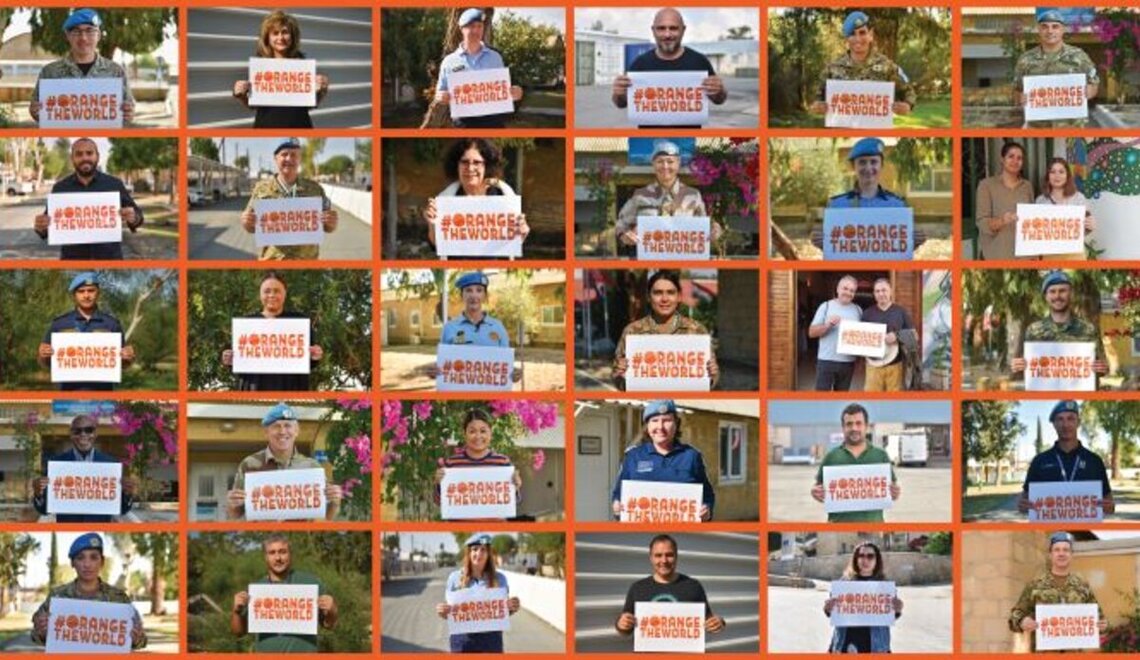The Baha’i teachings encapsulate a profound commitment to the principle of equality, with a particular emphasis on the elimination of violence against women. This commitment resonates deeply with the objectives of the United Nations’ International Day for the Elimination of Violence Against Women, celebrated annually on November 25. This day serves not merely as a reminder of the egregious plight of women around the world but also as a clarion call to mobilize efforts toward the cessation of gender-based violence. The interconnection between the Baha’i principles and the UN’s mission offers a fertile ground for dialogue and action.
Central to the Baha’i faith is the recognition of the oneness of humanity. This tenet posits that all individuals, irrespective of gender, ethnicity, or social status, share an inherent dignity. As such, any violation of this dignity—particularly acts of violence against women—stands as a direct affront to the fundamental Baha’i belief in equality. The emphasis on oneness not only invites individuals to transcend their superficial divisions but also to recognize interconnectedness and mutual responsibility in addressing societal ills.
The Baha’i teachings advocate for the education and empowerment of women, positing that the advancement of society is inextricably linked to the elevation of women. Abdu’l-Baha, the son of Baha’u’llah, famously stated, “Women and men are like two wings of a bird; unless both wings are strong, the bird will not fly.” This metaphor vividly illustrates the necessity for gender equity to achieve societal progress. When women are educated, empowered, and free from violence, they can contribute to the upliftment of their communities, fostering environments conducive to peace and cooperation.
In considering the UN Day for the Elimination of Violence Against Women, the Baha’i Community echoes the call for a paradigm shift in how society views and addresses violence against women. This shift requires a multifaceted approach that encompasses education, advocacy, and legislation. Education is particularly pivotal, as it not only informs individuals about their rights but also fosters respect and empathy across genders. Baha’i institutions are engaged in community-building efforts that prioritize education, particularly in underserved regions, recognizing that knowledge is an essential tool for dismantling systemic violence.
Moreover, the Baha’i teachings illuminate the notion that violence against women is not merely a physical act but also a manifestation of deep-rooted societal norms and biases. These biases are often perpetuated through cultural narratives and institutional practices that normalize violence and undermine the status of women. Addressing this requires a radical rethinking of societal values, one that Baha’is believe can be achieved through consultation, dialogue, and the promotion of human rights.
The role of men in promoting the elimination of violence against women is another dimension highlighted by Baha’i teachings. Men are called to be allies in this struggle, taking an active stance against misogyny and injustice. The narrative surrounding gender-based violence must evolve to include male accountability and participation, thereby dismantling the patriarchal structures that facilitate violence. Through engaging men as advocates for change, the Baha’i Community seeks to cultivate a culture of respect and partnership between the genders.
Importantly, the interconnectedness of local and global efforts is emphasized in the Baha’i approach to the elimination of violence against women. The teachings promote the idea that change begins at the grassroots level, where local communities can lead the way in fostering understanding and promoting justice. At the same time, these local efforts must align with larger global initiatives—such as those spearheaded by the United Nations—to create a harmonized and synergistic effort toward eradicating violence against women.
In alignment with the observance of the International Day for the Elimination of Violence Against Women, Baha’is are urged to participate in actions that raise awareness and facilitate dialogue on this pressing issue. Activities may include workshops, community discussions, and collaborative projects that bring together individuals from diverse backgrounds to strategize solutions. Such initiatives not only serve to educate but also promote solidarity among various groups, fostering a spirit of unity and cooperation as they navigate shared challenges.
As the observance of this day encourages reflection and action, it becomes essential for individuals to consider how personal attitudes and behaviors can contribute to a larger culture of respect and equality. The Baha’i teachings implore individuals to engage in self-reflection, questioning their own perceptions and biases while striving to embody the ideals of compassion and service. This internal journey can pave the way for transformative societal change.
To encapsulate, the Baha’i teachings provide a rich and compelling framework for addressing the issue of violence against women. They foster a perspective that acknowledges the pivotal role of gender equality in enhancing societal well-being. By aligning with the principles observed on the UN Day for the Elimination of Violence Against Women, individuals and communities can embark on a shared journey toward a more just and equitable world. Through education, advocacy, and the promotion of gender equity, the Baha’i Community exemplifies a vision that not only seeks to eliminate violence against women but also aspires to build a foundation of unity and justice for all.
